
Mother’s Day can be a particularly difficult time for immigrant families at risk of deportation and others living under the threat of vigilante and state violence. What is publicly marked as a day of celebration is instead shadowed by sadness and fear.
This dissonance is particularly acute this year, as the US has seen a rising tide of hate in the wake of the 2016 election. Hate-based acts, particularly crimes that were racially or religiously motivated, increased by more than 20 percent in nine US cities last year. The Trump administration’s efforts to push through travel bans and mass deportations have raised fear among immigrant and Muslim communities.
Forward Together, the multiracial community organization that I work with, is seeking to counteract the terror inflicted on these communities through the power of art. During our annual Mamas Day campaign this year, we worked with artists and 28 grassroots groups to collect and deliver 15,000 cards to immigrant and Muslim mamas across the country. This slideshow showcases the Mamas Day art alongside the voices of participants.
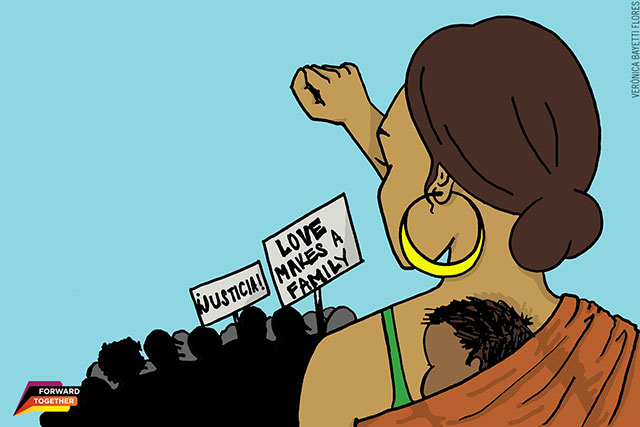 (Image: Veronica Bayetti Flores)
(Image: Veronica Bayetti Flores)
“Our goal with Mamas Day has always been to highlight mothers who are invisible in popular representations of motherhood, so we focus on lifting up single moms, queer families, incarcerated parents and immigrant mamas,” said Kalpana Krishnamurthy, policy director at Forward Together. “This year, with the rise of attacks on immigrant and Muslim communities, including efforts to ban people from Muslim majority countries from entry into the US and mass deportations, we wanted to use Mamas Day as an opportunity to let these mamas know they are not alone.”
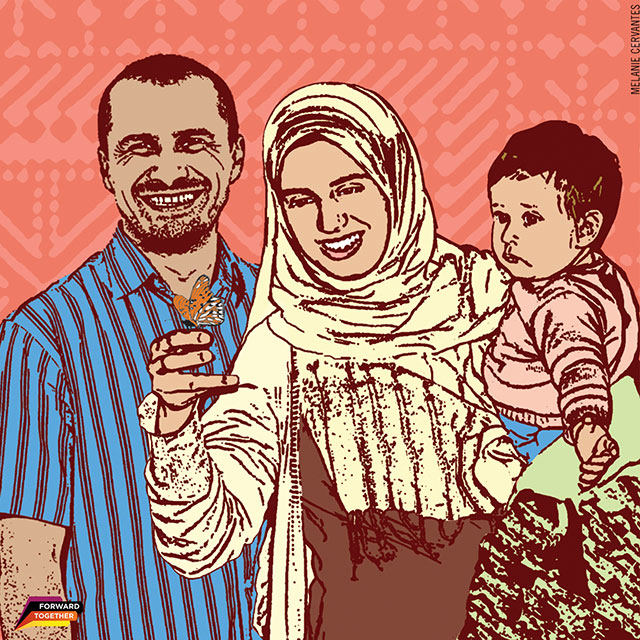 (Image: Melanie Cervantes)
(Image: Melanie Cervantes)
“We have leaders in both Muslim and undocumented immigrant communities,” said Rich Stolz, executive director of One America. “Our mission is to keep families together and resist any attempts to separate them, whether that’s travel bans or deportation. In this atmosphere, where there’s so much fear and uncertainty, it’s so important for our members to know that people have their backs. It’s especially important on Mamas Day, because some of our members might not know if they’ll see their mamas again. These cards are symbols of hope in an otherwise dark time. A show of solidarity from a broader community that stands behind them, and that values them.”
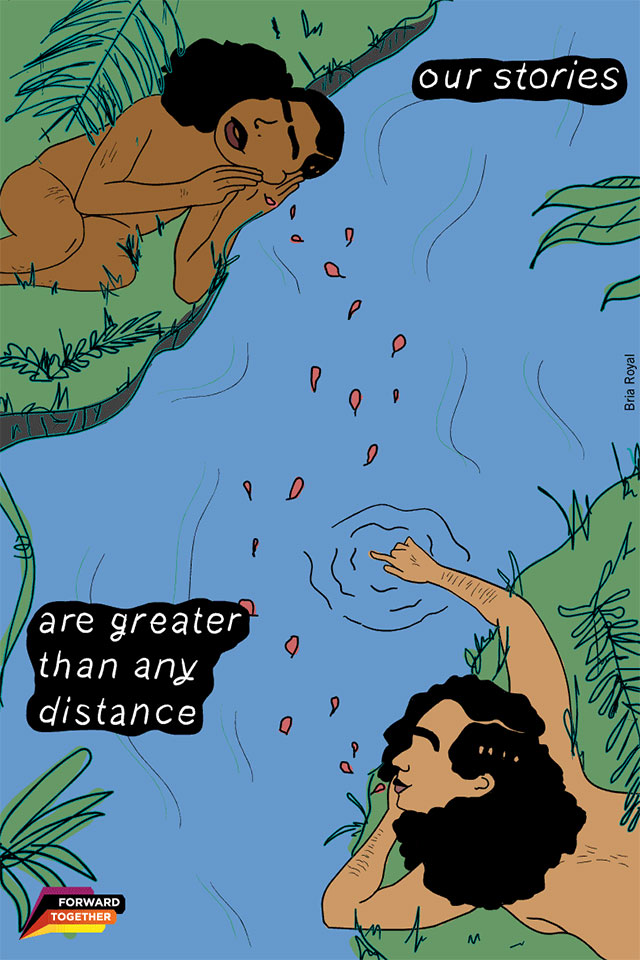 (Image: Bria Royal)
(Image: Bria Royal)
“Deportations are real and happening to families every day,” said Maria Jimenez, program director of Mujeres Unidas y Activas (MUA). “I’ve sat with immigrant mothers, helping them think through an emergency plan for their families if they get deported. No mother should have to go through that. Mamas Day shows our members that there are many people who want to be a part of that network of support. The Mamas Day cards show them that there are thousands of people that care about what they are going through.”
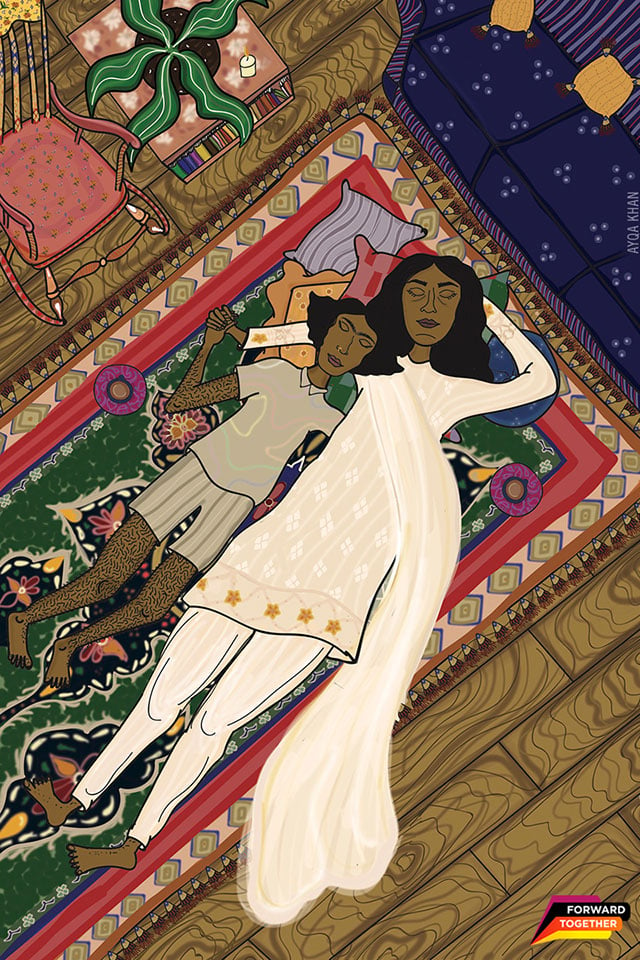 (Image: Ayqa Khan)
(Image: Ayqa Khan)
“Our mosque was vandalized twice in a month in December. In response to those two devastating acts of hate, we had an outpouring of community support and solidarity,” said Aneelah Afzali, executive director of the American Muslim Empowerment Network (AMEN), an initiative of the Muslim Association of Puget Sound. “Some local community residents came by on a snowy day after the second vandalism and left handwritten notes of love and support on all the cars while we prayed inside. Our congregation was so touched and moved by this action. In moments when people are being dehumanized and places of worship are being destroyed, efforts like Mamas Day that uplift all of our humanity are so important not only to those marginalized communities, but to all of us. That’s why we wanted to participate in Mamas Day.”
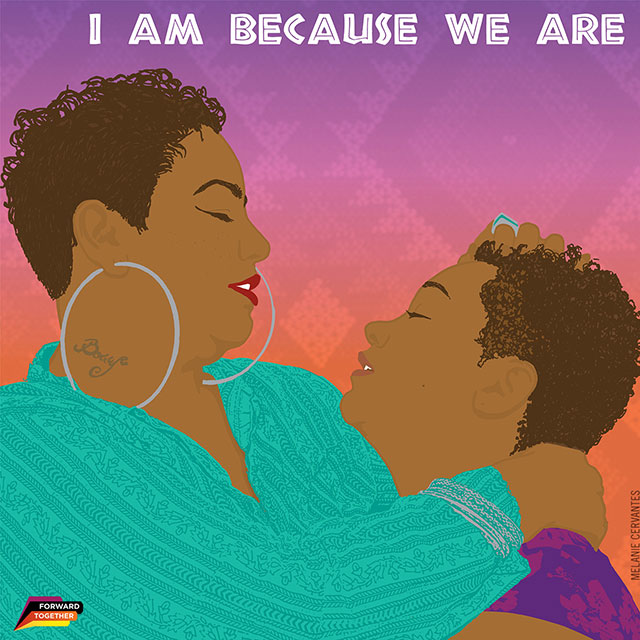 (Image: Melanie Cervantes)
(Image: Melanie Cervantes)
Tia Oso, national organizer at the Black Alliance for Just Immigration, describes a nightmare scenario for those with a family member facing deportation. “Detention centers are all private facilities and immigrant detainees have fewer rights than a citizen that has been incarcerated. It is harder for family members to know or find out where their loved one might be detained and to be able to communicate with them when they do know. Detention centers are often in rural areas and placement in a center is up to the discretion of the ICE director and detention supervisor. A person could be moved without notice. Families often find out where to find family members through a letter or phone call from an attorney.”
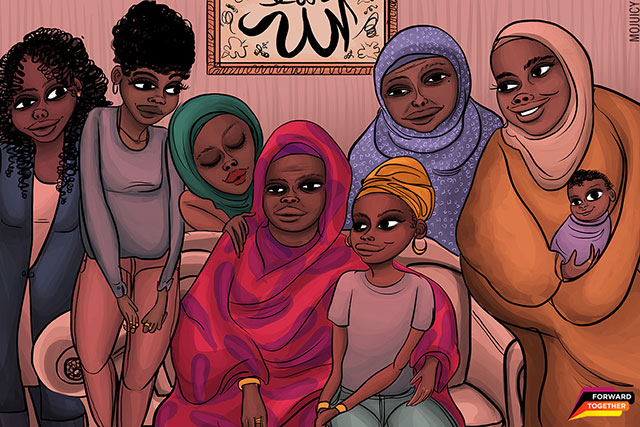 (Image: Mojuicy)
(Image: Mojuicy)
“There was a specific and necessary call for Black Muslim representation that I wanted to help be a part of,” said Mojuicy, the artist who crafted the card above for Mamas Day. “I called on my friend Ifrah Ahmed to collaborate with on this piece. We spoke about the Somali civil war, diasporic communities and family, and this piece was the outcome. There is no Muslim community and ummah without our Black brothers and sisters, and it is key we include, affirm and uplift them, and that includes major holidays like Eid but also days like Mama’s Day.”
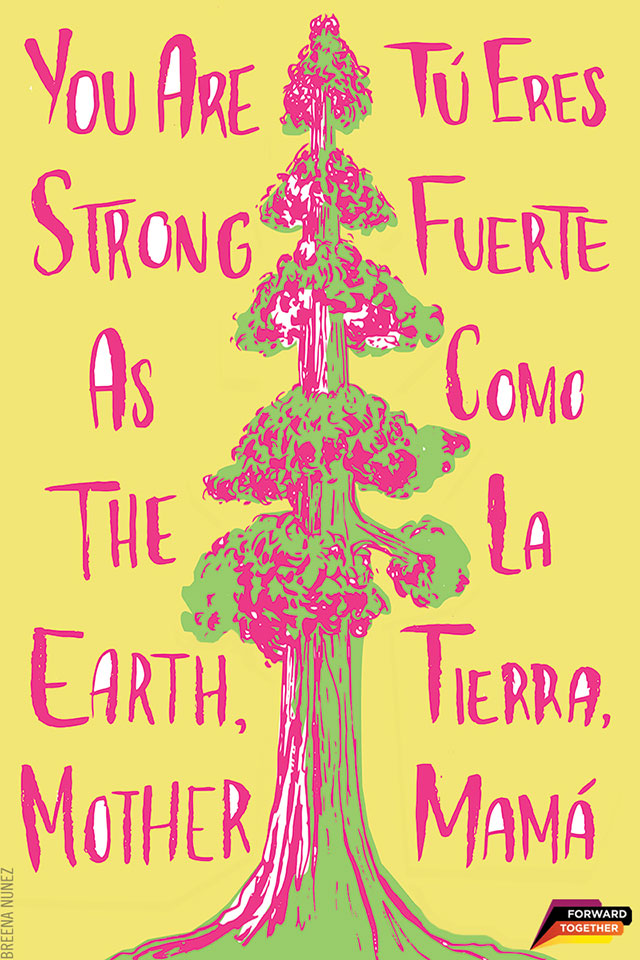 (Image: Breena Nuñez)
(Image: Breena Nuñez)
“As an artist of color, I feel a strong obligation to use illustration for uplifting the narratives that go unnoticed in mainstream media,” said Breena Nuñez, one of the artists collaborating on Mamas Day this year. “This project in particular is so beautiful because so many of these artists are bringing their personal and cultural understandings of what it means to honor our mothers. The art we are making is the lifeblood of our peoples, and we hold that historical responsibility to observe, reflect and speak the truth on how we need to show love for the women and mother figures in our lives.”
Thank you for reading Truthout. Before you leave, we must appeal for your support.
Truthout is unlike most news publications; we’re nonprofit, independent, and free of corporate funding. Because of this, we can publish the boldly honest journalism you see from us – stories about and by grassroots activists, reports from the frontlines of social movements, and unapologetic critiques of the systemic forces that shape all of our lives.
Monied interests prevent other publications from confronting the worst injustices in our world. But Truthout remains a haven for transformative journalism in pursuit of justice.
We simply cannot do this without support from our readers. At this time, we’re appealing to add 50 monthly donors in the next 2 days. If you can, please make a tax-deductible one-time or monthly gift today.